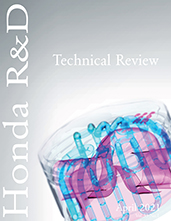Training / Education
Combustion and Emissions for Engineers
Public awareness regarding pollutants and their adverse health effects has created an urgent need for engineers to better understand the combustion process as well as the pollutants formed as by-products of that process. To effectively contribute to emission control strategies and design and develop emission control systems and components, a good understanding of the physical and mathematical principles of the combustion process is necessary. This course will bring issues related to combustion and emissions "down to earth," relying less on mathematical terms and more on physical explanations and analogies.

